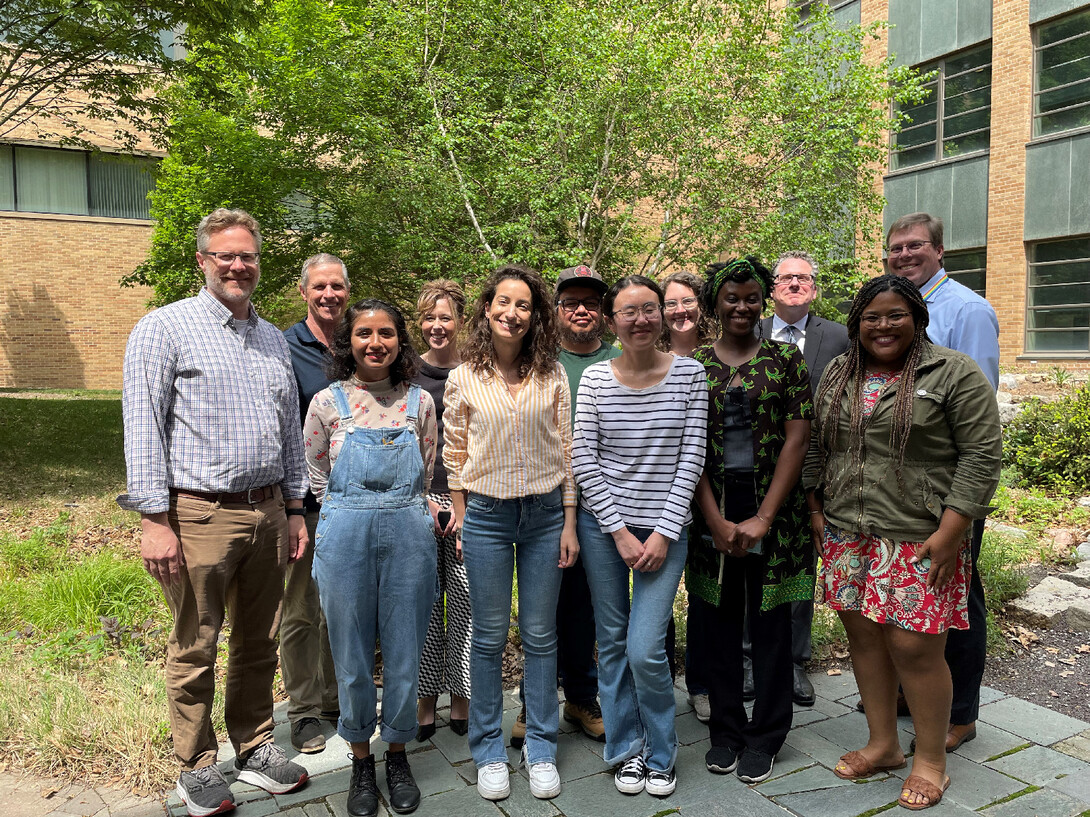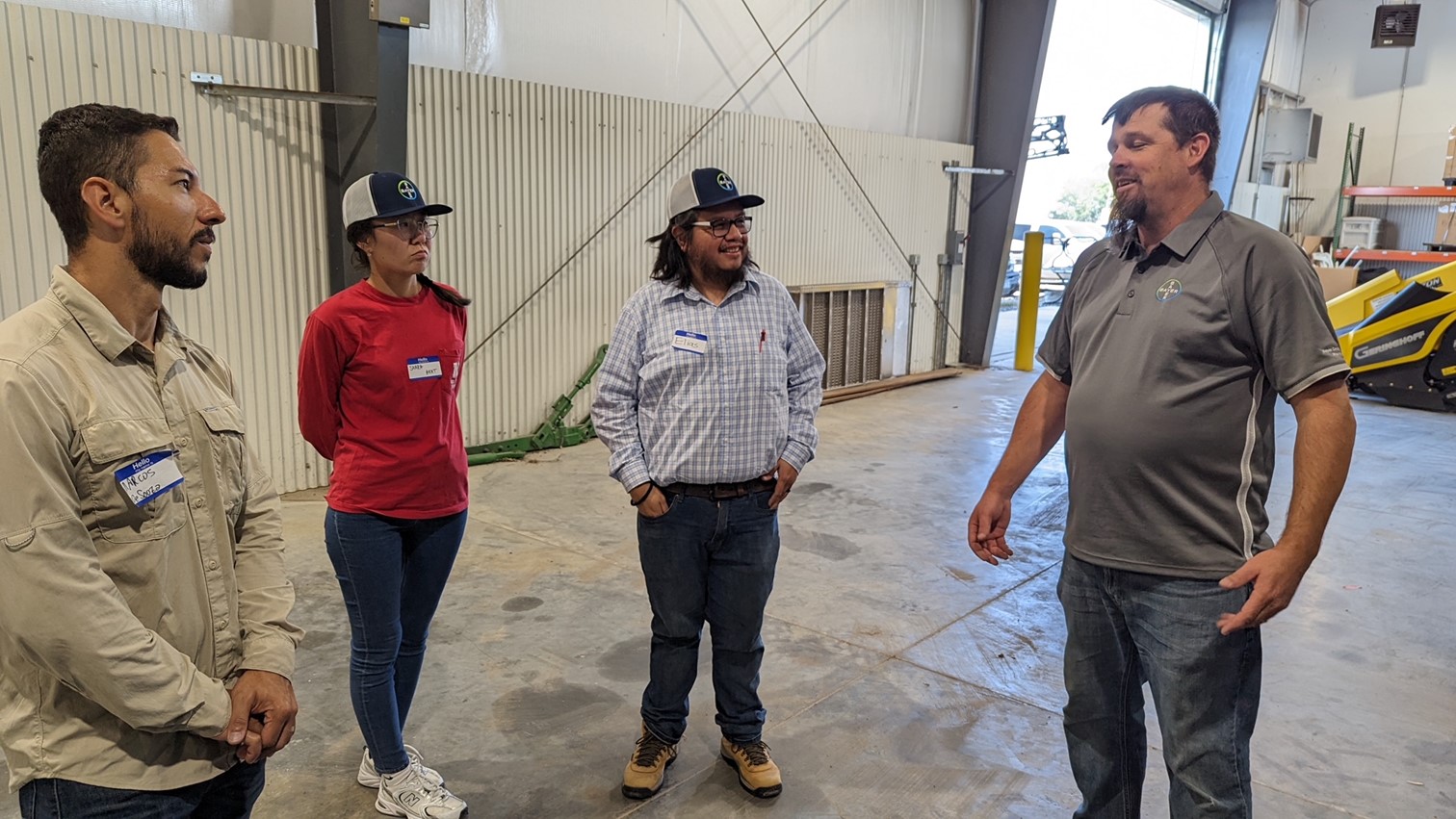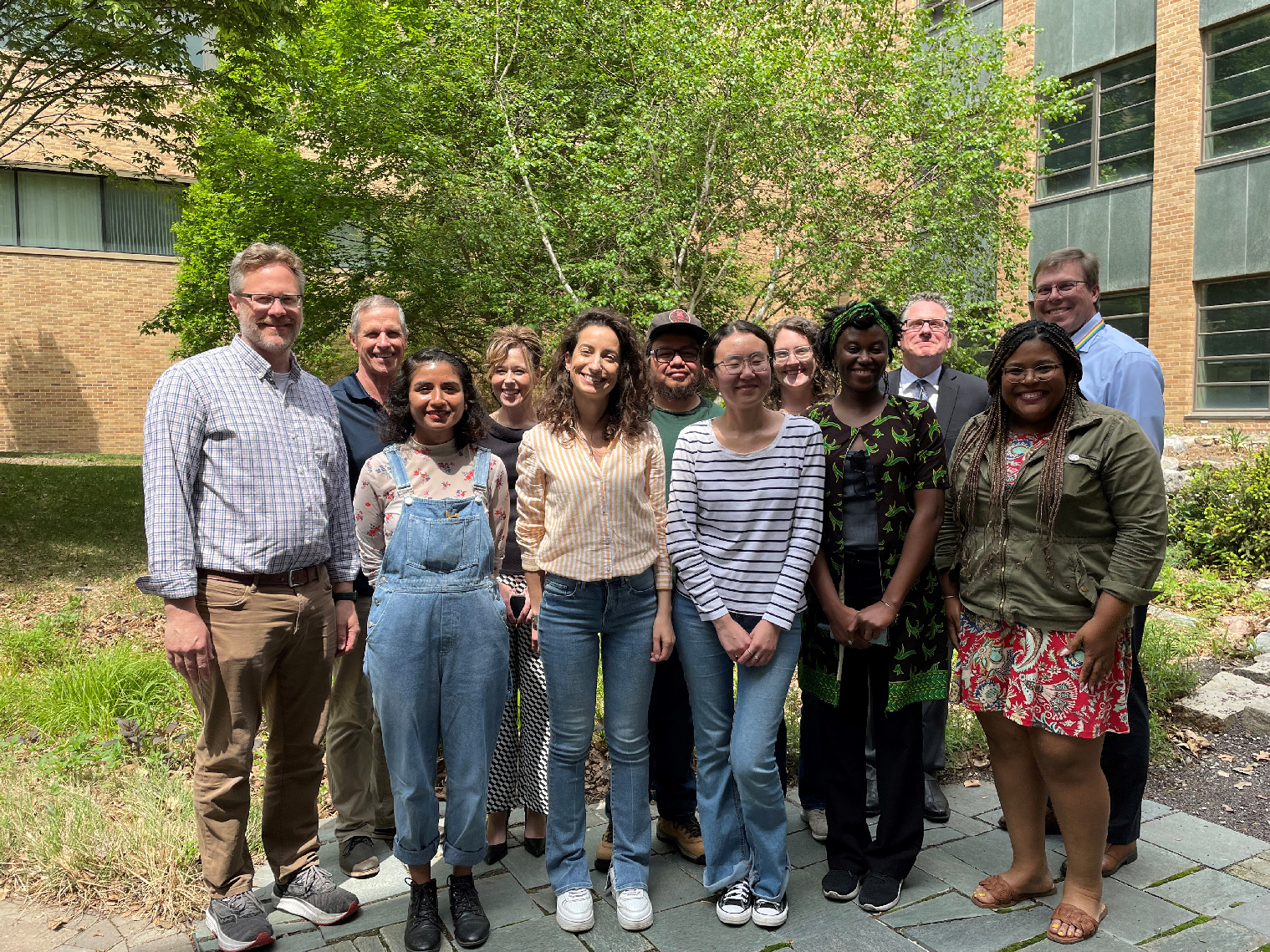
Navigating the challenges of graduate school can be daunting, says Marcos Goncalves de Souza, who is pursuing a master’s degree in plant breeding and genetics at the University of Nebraska–Lincoln. But he and other participating Husker grad students say they’re finding important support and guidance this year through a well-structured mentorship program sponsored by Bayer Crop Science.
“During my time as a mentee, I have had several interviews for internships and Ph.D. positions,” de Souza said. “My mentor provided valuable advice and assistance, helping me navigate the interview process successfully. She also played a crucial role in significant decisions, such as choosing where to apply for a Ph.D. position and selecting a school aligned with my goals and future aspirations.”
De Souza’s observations are in line with comments from other Husker mentees, who describe the Bayer program as “transformative,” “incredibly supportive” and “a great opportunity.”
The mentorship program focuses on personal development, aiming to round out a young scientist’s capabilities and perspective beyond his or her technical achievements in the laboratory or in the field. Bayer scientists volunteer to provide one-on-one mentorship. The program also includes webinars, site visits, and online and in-person events.
The program helps grad students on multiple fronts: personal and career goal-setting; assessment of an individual’s strengths and weaknesses via Gallup’s CliftonStrengths analysis; understanding private-sector scientific culture; networking; and honing soft skills, such as effective communication and constructive collaboration.
“The emphasis on communication and the realization of the importance of non-scientific knowledge have been transformative insights for me,” said Boanerges Elias Bamaca, a doctoral candidate in biological systems engineering working in bioplastic production from corn-derived feedstocks. “These experiences have broadened my perspective beyond pure science.”
The program has “allowed me to identify my personality characteristics and which work environment would fit me,” said Mahnoor Asif, a third-year doctoral student in plant pathology working on Fusarium head blight in wheat, as well as fungicide management. “In the end, I understood that I am probably better suited to work in industry, according to my personality traits and habits.”

The broadening experiences through the mentorship program better prepare young scientists for career success, said Corby Jensen, a Bayer scientist in Nebraska who oversees late-stage testing of new products in Nebraska, Kansas and Colorado and coordinates the mentorship program at Nebraska.
“If you don’t have the people skills, the networking skills and the ability to relate to people, even though you may be incredibly technically proficient, you’re not going to be the top candidate,” said Jensen, a Husker alumnus.
The central aim is to “provide one-on-one mentoring for a year to help late-stage graduate students and postdocs understand how to be successful in their career,” regardless of whether it is in academia, the private sector or another venue, said Bayer plant scientist Timothy Wertin. A specialist in plant microbial studies, he oversees the Bayer mentorship program in North America.
The University of Nebraska–Lincoln’s participation started in the wake of conversations among Tala Awada, associate dean of the Institute of Agriculture and Natural Resources’ Agricultural Research Division; Tiffany Heng-Moss, dean of the College of Agricultural Sciences and Natural Resources; and Bayer’s Jenson and Pat Morgan. Morgan, a crop physiology specialist in St. Louis who leads a team of Bayer field-testing scientists, is also a Bayer Science Fellow, with duties of public outreach, including the mentorship program.
“The early stage of young scientists’ career is an important and exciting phase in their life,” said Awada, a professor in the School of Natural Resources. “They are learning, curious, ambitious and determined to develop their domain expertise. The same phase also comes with challenges and uncertainties, such as research direction, finding their niche and carving their career path.”
As a result, she said, “effective guidance, mentoring, networking, strengthening their connections, building their soft skills are very important for students’ future success and well-being.”
In carrying out the program, Bayer partners with the Agricultural Research Division and College of Agricultural Sciences and Natural Resources. Jocelyn Bullock, the college’s student success coordinator, implements the program at Nebraska.
In addition to de Souza, Bamaca and Asif, the other Husker mentees are Shara Akat, a doctoral student in agricultural economics; Thomas Wilbur Davis, a doctoral student in plant health; Andrea Rilakovic, a doctoral student in entomology studying at the West Central Research, Extension and Education Center in North Platte; and Laura Thompson, a Nebraska Extension educator and co-coordinator of Extension’s On-Farm Research Network, pursuing a doctorate in digital agriculture.
A portion of applicants is accepted for the start of the program each March, and Bayer devotes great attention to matching new mentees with Bayer professionals well suited to their needs.
“The program is student-driven, so they can shape or format the mentoring sessions to their concerns or needs,” Asif said.
The program’s webinars include presentations by scientists on how they find fulfillment in their work and are successful in their roles; effectiveness in interviews and applications; visa details for international students; and how to build emotional and mental resilience in balancing work and home.
“I am genuinely grateful for this mentorship experience,” de Souza said. “It has been a transformative journey, enriching both my academic and personal growth. The support and knowledge I’ve gained as a Bayer mentee have significantly boosted my confidence and enthusiasm as I move forward in my academic and professional endeavors.”
Share
News Release Contact(s)
Related Links
Tags
High Resolution Photos

HIGH RESOLUTION PHOTOS








